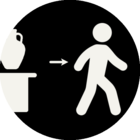I have very little python knowledge so I have real trouble understanding the documentation FME provides:
I have a PythonCaller that calculates the slope of a Raster. At the end I want to itterate over the cells to calculate the desired height, but for now I want to understand how to use Python to manipulate a raster.
class FeatureProcessor(object):
def input(self,feature):
raster = feature.getGeometry()
rst = fmeobjects.FMERasterTools()
settings = {'kFME_CalculateSlope_interpolateNodata' : 'No'}
raster_new = rst.calculateSlope(1,raster,settings)
feature.setGeometry(raster_new)This works, except that it still interpolates Nodata. So how should I write down the settings dict to tell the function not to interpolate and use the Horn method?
Best answer by debbiatsafe
View original










